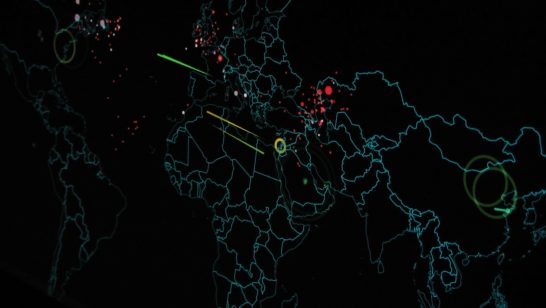
At the 2010 Review Conference of the Nuclear Non-Proliferation Treaty (NPT), an emerging notion of the humanitarian impact of nuclear weapons managed to cut through the usual focus on security policy.
After four weeks of discreet but effective negotiations by a few champion states of humanitarian disarmament, the outcome document expressed its “deep concern at the catastrophic humanitarian consequences of any use of nuclear weapons and reaffirms the need for all States at all times to comply with applicable international law, including international humanitarian law”. [1]
It was doubtful back then whether any of the nuclear weapon states or the states that currently rely on nuclear weapons in their security doctrines knew that those words would take on a life of their own and develop into one of the most promising and dynamic initiatives that could turn a stagnant nuclear weapons regime into a groundbreaking disarmament process.
Five years later, as governments are about to meet in New York again for the 2015 NPT Review Conference a lot of things have changed: three conferences on the topic took place; 155 states endorsed the joint statement on the humanitarian impact of nuclear weapons; almost 70 states pledged to fill the legal gap for the prohibition and elimination of nuclear weapons; and civil society is mobilizing for a process to ban nuclear weapons to kick-off in 2015.
At this Review Conference, all eyes will be on the humanitarian initiative and the push for a treaty banning nuclear weapons.
The humanitarian initiative has generated a powerful and dynamic movement, which has reasoned with many, states, international organisations, and civil society. A humanitarian-based approach to nuclear disarmament has reminded many that nuclear weapons still exist, that there is still a risk of them being used, and that any use would cause devastating immediate and long-term effects. The effects would not be constrained by national borders, and no state or international organization could address the humanitarian emergency in an adequate manner. [2]
Thanks to the three fact-based conferences on the topic in Oslo, Nayarit, and Vienna, the evidence of the catastrophic humanitarian impact that any use of nuclear weapons would cause is obvious and remains uncontested. At the conclusion of the third conference in Vienna, the Chair’s summary notes that “it is clear that there is no comprehensive legal norm universally prohibiting possession, transfer, production and use” of nuclear weapons. [3]
The Austrian government then issued a pledge to “pursue effective measures to fill the legal gap for the prohibition and elimination of nuclear weapons”. [4] Since the Vienna conference, states have been associating themselves with this pledge, and at the time of writing, almost 70 states have declared themselves ready to fill this legal gap. [5]
While such a pledge does not automatically mean support for a ban on nuclear weapons, it seems reasonable to expect that states that endorse the pledge agree that a legal gap should be filled with new law. The momentum for a new, legally binding instrument is clearly growing, and many states declare their willingness to pursue such negotiations even without the participation of any nuclear-armed states.
So what does this mean for the 2015 NPT Review Conference? In light of the evidence presented at the three conferences on the humanitarian impact of nuclear weapons, the humanitarian concerns about nuclear weapons and the need to fill the legal gap must be the key focus of the discussions during the four weeks in New York.
Since its inception, it has often been said that the NPT is in danger. While the Treaty’s non-proliferation aims have served the international community well, the lack of concrete progress on nuclear disarmament affects the credibility of the Treaty. A legal instrument banning nuclear weapons could therefore be pursued in order to implement the obligations of the NPT, and to restore its credibility.
The resistance of the nuclear weapon states to engage in this initiative does not diminish its importance, but it will mean that achieving a progressive outcome document from the 2015 NPT Review Conference that recognizes the momentum achieved in recent years will be difficult.
However, since the two “successfully” agreed outcome documents from the 2000 and 2010 Conferences remain unimplemented, it is perhaps time to stop equating success of a Review Conference or a whole review cycle with a consensus-adopted outcome document. The strength of the NPT does not lie in the sentences agreed upon at each five-year interval, but rather in the actions that states parties take to implement the Treaty obligations.
Despite expected resistance from nuclear weapon states, there is a strong expectation from civil society that supporters of the humanitarian initiative will devote significant time to discuss the conclusions from the three conferences on the humanitarian impact, and in particular ways to fill the legal gap. Such a discussion will be important to carry out even if not all states party to the NPT want to engage, since a new legally binding instrument prohibiting nuclear weapons is an effective way for all states to implement their obligations under Article VI. Banning nuclear weapons would complement and strengthen the NPT and create a more conducive climate for nuclear disarmament.
As governments gather for the ninth Review Conference of the NPT, the cities of Hiroshima and Nagasaki are preparing to commemorate the 70th anniversary of the atomic bombings of the two cities. The anniversary reminds us that nuclear weapons are not just theoretical concepts for deterrence; they are real weapons with unacceptable and indiscriminate consequences of use.
The 2015 NPT Review Conference is the time for governments to signal their readiness to join a diplomatic process to negotiate a treaty banning nuclear weapons, and launch such process by the 70th anniversary of the atomic bombings of Hiroshima and Nagasaki. As long as nuclear weapons are seen as important and legitimate, it will encourage proliferation and maintenance of current arsenals. The work to stigmatize, ban and eliminate nuclear weapons is the best defense against the use of nuclear weapons, and it is a responsibility of all states under Article VI.
[1] Final Document, 2010 Review Conference of the Treaty in the Non-Proliferation of Nuclear Weapons, p.12, pp. 80 (available here)
[2] Chair’s summary of the Oslo Conference on the Humanitarian Impact of Nuclear Weapons (available here)
[3] Report and summary of Findings of the Conference, Vienna Conference on the Humanitarian Impact of Nuclear Weapons, p.2 (available here)
[4] Austrian Pledge, Vienna Conference on the Humanitarian Impact of Nuclear Weapons, p.2 (available here)
[5] List of states that have pledged to fill the legal gap for the prohibition and elimination of nuclear weapons, International Campaign to Abolish Nuclear Weapons (available here)
The opinions articulated above represent the views of the author(s), and do not necessarily reflect the position of the European Leadership Network or any of its members. The ELN’s aim is to encourage debates that will help develop Europe’s capacity to address the pressing foreign, defence, and security challenges of our time.



